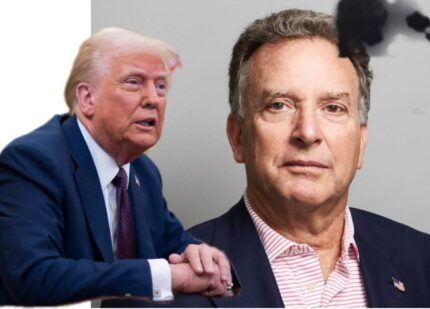The accidental addition of journalist Jeffrey Goldberg by Trump administration senior officials to a Signal group chat discussing U.S. military operations in Yemen has sparked outrage in Washington, prompting investigations and political backlash. The Senate Intelligence Committee, originally scheduled to discuss drug cartels and human trafficking, shifted its focus to the controversy, grilling top national security officials on their handling of classified information.
During a tense hearing, Director of National Intelligence Tulsi Gabbard and CIA Director John Ratcliffe denied that any sensitive details were shared in the chat. Ratcliffe argued that “no specific operational information on weapons, targets, or timings” was disclosed. When asked if the leak was a serious mistake, Ratcliffe simply responded, “No.”
Democratic senators, including Michael Bennet and Jon Ossoff, strongly criticized the administration’s handling of the situation. Ossoff called it an “embarrassment,” while Bennet accused officials of “sloppiness, incompetence, and blatant disrespect” for intelligence protocols. Meanwhile, Senate Republicans were more reserved, with Senator Lindsey Graham stating, “We dodged a bullet.”
Trump Defends National Security Team Amid Criticism
Despite mounting scrutiny, President Donald Trump has stood by his national security team, dismissing the controversy as a media-driven distraction. Speaking to NBC, Trump defended National Security Adviser Mike Waltz, who took responsibility for the accidental addition of Goldberg to the chat. “Mike Waltz has learned a lesson, and he’s a good man,” Trump said. He characterized the incident as a “glitch” that had “no impact at all” on military operations.
At a White House event, Trump reinforced his support for Waltz, downplaying concerns over using Signal for sensitive discussions. “They used an app that a lot of people in government use,” he argued. Waltz, for his part, took aim at Goldberg, accusing him of focusing on “more hoaxes” instead of real national security concerns.
In an interview with Newsmax, Trump suggested that an unidentified staffer was responsible for Goldberg’s accidental inclusion in the group chat. Later, speaking to Fox News, Waltz nearly apologized, calling the situation “embarrassing” but reiterated that it was his responsibility.
Lawsuit and Investigations Loom Over Administration
The fallout from the Signal chat leak has now extended beyond political debates, with watchdog groups launching legal actions. The non-partisan organization American Oversight has filed a lawsuit against officials involved in the chat, accusing them of violating federal laws on record-keeping. The group argues that by setting messages to automatically delete, officials breached the Federal Records Act and the Administrative Procedure Act.
Meanwhile, the Senate Intelligence Committee and the FBI have both announced investigations into the breach. Senate Armed Services Committee Chair Roger Wicker confirmed that lawmakers will push for full access to the group chat’s transcripts to determine if any sensitive information was compromised. Republican Senator Jim Risch also stated that a thorough investigation would be conducted.
National security experts have warned that discussing military operations over an unsecured platform poses serious risks. Former CIA officer Mick Mulroy called the leak a “major operational lapse,” stressing that all officials involved should have known better.
Signal and Security Concerns Take Center Stage
In response to concerns over its platform’s security, Signal issued a statement rejecting claims that it had vulnerabilities. “Signal is open source, so our code is regularly scrutinized in addition to formal audits,” the company stated, calling its platform “the gold standard for private, secure communications.”
However, critics argue that regardless of the app’s security measures, the use of a commercial messaging service for national security discussions is reckless. Experts have warned that foreign adversaries could have exploited the situation, gaining access to sensitive conversations.
While the Trump administration has signaled that it may reduce reliance on civilian apps for official communications, it remains unclear whether officials will face any disciplinary action. As investigations unfold, the incident continues to fuel broader concerns about how the U.S. government handles classified information in the digital age.
Political Fallout and the Road Ahead
The Signal chat controversy has quickly become a partisan flashpoint, with Democrats using it to attack the Trump administration’s national security practices. Calls for the resignations of Defense Secretary Pete Hegseth and Director of National Intelligence Tulsi Gabbard have grown louder, with critics accusing them of incompetence.
Republicans, however, have largely downplayed the issue. Many see it as a manufactured scandal aimed at damaging Trump’s re-election prospects. The administration, in turn, has remained defiant, portraying the controversy as a politically motivated attack rather than a legitimate national security concern.
As investigations continue, the White House will need to address growing concerns about its handling of classified information. Whether the scandal ultimately fades away or leads to deeper repercussions remains to be seen.














